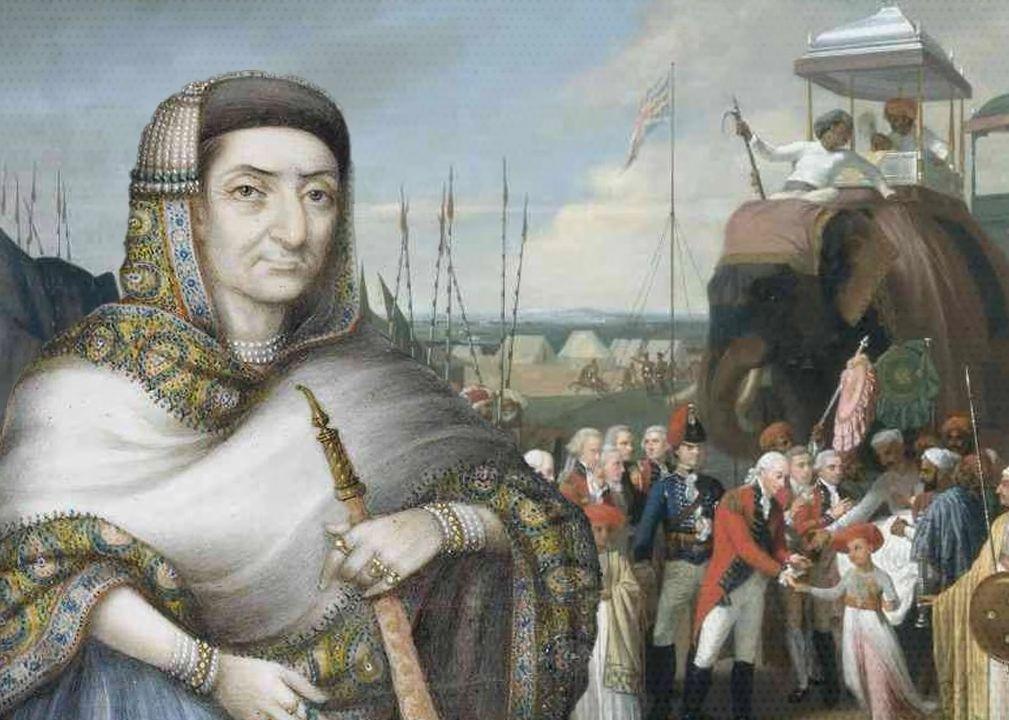
Women Entrepreneurs in Indian History: Begum Samru & Jibhabu
In a patriarchal society where women were often relegated to domestic roles, Begum Samru and Jibhabu of Gujarat carved out their own paths as successful entrepreneurs in the 18th and 19th centuries. Through their financial expertise and strategic leadership, they defied societal norms and left lasting legacies in Indian history.
Begum Samru: The Diplomatic Ruler
Born as Imhoff’s servant, Begum Samru rose to become the ruler of a 621-square km estate in Sardhana, Uttar Pradesh, through her remarkable diplomacy and business acumen. Her journey began when she married Walter Reinhardt, a German mercenary, and later, French General Jean Law de Lauriston. After the death of her second husband, she inherited a vast fortune and became the ruler of Sardhana.
Begum Samru’s diplomatic prowess was instrumental in maintaining peace and stability in her domain. She negotiated with the British East India Company, the Mughal Empire, and the Maratha Confederacy to secure treaties and alliances that protected her interests. Her shrewd business sense allowed her to diversify her investments, including real estate, agriculture, and trade. She also built a strong army, comprising both Indian and European soldiers, which ensured her safety and security.
Begum Samru’s legacy extends beyond her entrepreneurial achievements. She was a patron of the arts, architecture, and education. She built several buildings, including the iconic Sardhana Fort, which still stands today. Her efforts to promote education and healthcare in her region earned her the respect and admiration of her people.
Jibhabu of Gujarat: The Negotiator
Born in the late 18th century, Jibhabu of Gujarat was a member of the Ahir community, a farming caste. Her family’s business, which focused on collecting land revenue, was severely impacted by the British East India Company’s policies. Instead of giving up, Jibhabu decided to negotiate with the British to restore her family’s business.
Jibhabu’s remarkable negotiating skills allowed her to secure a contract with the East India Company to collect land revenue in the region. She worked closely with the British officials, understanding their needs and adapting her business strategies accordingly. Her success was not limited to her family’s business; she also helped other local farmers and traders to navigate the complex British system.
Jibhabu’s achievements did not go unnoticed. She became a respected figure in her community, known for her financial expertise and strategic leadership. Her success paved the way for other women entrepreneurs in Gujarat, inspiring them to take control of their businesses and build their own legacies.
Lessons from the Past
The stories of Begum Samru and Jibhabu serve as a reminder of the enduring power of women entrepreneurs in Indian history. Despite facing numerous challenges and obstacles, they defied societal norms and built successful businesses through their financial expertise and strategic leadership.
Their legacies offer valuable lessons for modern-day entrepreneurs, particularly women. First, they demonstrate the importance of adaptability and resilience in the face of uncertainty. Second, they highlight the need for effective negotiation and diplomacy in business. Finally, they show that women can succeed in traditionally male-dominated industries, such as finance and trade, with the right skills and support.
Conclusion
Begum Samru and Jibhabu of Gujarat are trailblazers in the world of Indian entrepreneurship. Their stories, although centuries old, continue to inspire and motivate women today. As we celebrate their achievements, we must also recognize the challenges they faced and the obstacles they overcame. By learning from their experiences, we can build a more inclusive and supportive business community that empowers women to succeed and thrive.
Source:
https://ascendants.in/business-stories/pioneering-women-entrepreneurs-history/



